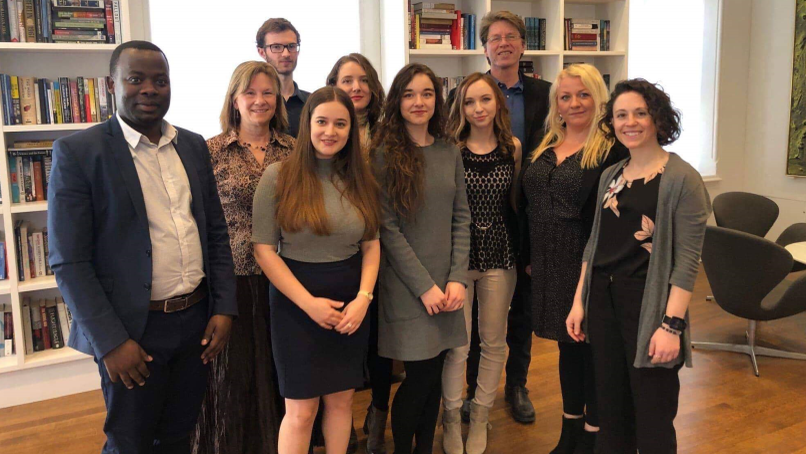Profile:
Service Learning, PCJ362H1
The course partners teams of 3 students with different NGOs, who then task student teams with challenging, semester-long projects. The projects are slated to benefit the NGOs, while also cultivating new skills and real world, quasi-professional experience for students. The NGOs are asked to mentor and facilitate the students as teams carry out their work.

Program Details
Instructor / Program Coordinator(s):
Professor Dylan Clark
Profile(s):
External Partners Faculty & Staff Students
Division:
Faculty of Arts & Science
Benefits to Students:
Students learn the essential skills of project management, team work and coordination. Many students also gain new software skills, in addition to honing their professional conduct and learning effective time management. Through first-hand experience of working in a professional organization, many students find clarity in terms of their own career paths.
Benefits to External Partners and the Community:
The projects are intended to support not-for-profits organizations in their community-oriented work. NGOs often have too many demands and not enough staff to meet them. Our student teams aim to fill gaps and bolster the ability of NGOs to carry out their charitable work.
Benefits to the University:
Service-learning is–by departmental intent and by student feedback–one of the core experiences of the Peace, Conflict and Justice program. Typically taken in a student’s 3rd year, the course may help crystalize in a student’s mind what gives their life meaning and where they can best contribute towards building a better world. Falling between the 2nd and 4th year experiences, this course helps students re-think abstract coursework in terms of real-world careers and change-making. Thus, the course amplifies, alters, and expands upon their more traditionally academic work. Finally, the course, according to students, creates friendships and solidifies a sense of program community.
Information for Interested Students:
Visit the University of Toronto’s Arts and Science Academic Calendar for more details: https://artsci.calendar.utoronto.ca/course/pcj362h1.
Advice for Faculty and Staff Interested in Creating a Similar Experiential Learning Opportunity:
It took a few years to really get the feel of the course–projects, assignments, class-time, and so forth. I would say: do some homework with other departments who run courses similar to what you have in mind. Ask for their syllabuses, talk to their instructors. Think carefully about what you’d like students to get from the course, and build the course accordingly. I would add that this course is completely out of my comfort zone (I’m a true lecturer by nature), but I’ve really grown to appreciate the ways that experiential learning can dramatically enhance student education, satisfaction, and achievement. I would strongly urge departments/programs to consider adopting an experiential course.
Students standing with Professor Clark
Details
Partnership Based
Curricular
Unpaid
